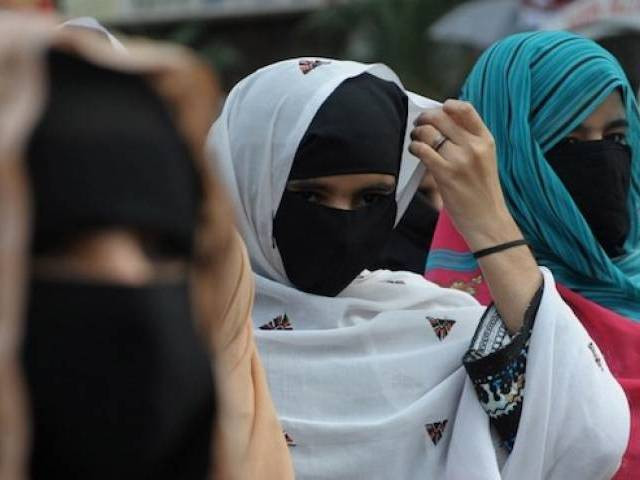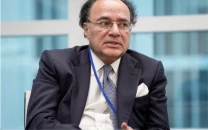Why are female journalists still taboo in Quetta?
Only 3 women reporters working with news channels and none associated with newspapers, says journalist

Shortage of women journalists in the city results in little to no coverage of women issues in the media.
Twenty eight-year-old Bakhtawara* feels this the most as she narrates her story. A victim of inhumane local traditions, Bakhtawara cannot fathom why no one ever took notice of how her life was ruined in the name of tribal customs. She was forced into marriage after her brother murdered another man from their village; as a way to settle the dispute and end animosity between the two families, it was decided Bakhtawara will be married to the deceased’s brother for compensation.
“I am living in a house where everyone treats me like their enemy,” she says, explaining that such marriages are customary in rural hostilities but most people are not aware of the cruel practices. “Discussing these issues in the media will protect other women from getting into trouble.”
According to the records of Directorate General of Public Relations Balochistan, there are 25 news channels and 171 daily newspapers operating in Quetta. Quetta-based journalist Hafeezullah Sherani says there are only three women reporters working with news channels and none associated with newspapers. The three reporters, he adds, don’t have Pakhtun or Baloch background and hence are unaware of local customs and languages.
“As a consequence, the only thing discussed in the media related to women is the art of embroidery,” Sherani comments sarcastically.
Javeria Malik Awan, a news channel reporter in Quetta, says lack of access and freedom due to cultural restrictions is a major hindrance when trying to report on women’s issues. “Sensitive topics such as violation of women’s rights and domestic abuse go unreported in the media because covering these issues is a difficult task; it can put us and our entire news organisation under threat. Educated or not, no one wants to speak to the media when it comes to women,” she says.
That is why, Awan argues, women journalists avoid reporting on women's issues and prefer highlighting issues that concern the general public and not just one gender. “The media has failed to bring any change in women's lives because journalists are unable to use the platform adequately,” she says.
Why women don’t work
Being a woman in the provincial capital means one has little access to social opportunities, fewer privileges and less protection. It is far worse if the woman happens to be a journalist. Cultural taboos, a dangerous work environment, harassment, hostility towards free media and unfair employment contracts make it difficult for women to join and stay in the media.
The city has three universities and all of them have journalism departments. Many girls graduate from these departments but they are nowhere to be found in the media industry. Yousuf Masih, an assistant professor and former chairperson of Balochistan University’s Media and Journalism Department, says there are roughly 100 students in one batch and around 10% to 12% of them are girls. The department was established in 1987 and Masih estimates that about 310 women students have received journalism degrees from the university so far.
Masih has also taught at Sardar Bahadur Khan Women's University and says there are 25 women students at their journalism department.
Over the years and more so recently, the media has provided employment opportunities to a large number of journalists in Quetta but women feel they have little space in the local industry. Shehla* has a master’s degree in journalism from the University of Balochistan but doesn’t work for a newspaper or a television channel; after graduation, she joined a non-governmental organisation. “I cannot pursue a career in journalism because our society considers it to be immoral,” she tells The Express Tribune.
“Parents do not allow their daughters to become journalists because women become famous very quickly and their fame brings shame to them and create difficulties,” she adds.
Though interested in women’s issues, Shehla says she can’t cover them because journalism requires field work and women cannot go to certain places.
In Balochistan, where the media is under attack and dozens of people have lost their lives in the last decade, working as a journalist is a difficult job for men but is even more challenging for women. “Cultural barriers and harassment in the streets and at work are more serious problems for women journalists than security issues,” Shehla claims, explaining that because locals believe journalism is immoral, they think women working in the field are shameless and corrupt.
In agreement, human rights lawyer and activist Jalila Haider says because working in the media industry is a taboo, women avoid pushing social boundaries. “Many also don’t work because it creates problems for their marriage,” she says.
Men can’t report either
While the culture prevents women from working in the media, it also holds men back from covering women's issues. Journalist Sherani says that even though he hears stories of violence against women almost every day, there’s nothing he can do.
"Women are not allowed to speak to male journalists so I have no option but to avoid issues pertaining to women. Families can take revenge from us if we report on victims of honour killing and any other issue related to women,” he says.
Talking about exceptions, Sherani says the suicide of Saqiba Kakar was covered last year only because her family cooperated with the media. The teenage student had committed suicide after her college's principal allegedly refused to send her examination form to the intermediate education board. “There are many cases just like Kakar but when the media goes to report, the family refuses to talk about it,” he says.
The strict segregation between men and women further highlights the need for female journalists and the role they can play in bringing women issues to the forefront. The problem is so acute that male reporters have no choice but to take a man’s opinion on issues related to women. “Reporters should talk to women about their issues as men always comment on women's issues from a different perspective and are unable to explain the problem,” human rights activist Haider says.
Journalism professor Masih agrees and says male journalists cannot fully understand the problems of women. “Women reporters and editors are necessary for covering women's issues as they are more likely to understand them better,” he says.
Moving forward
Women around the world and even in other parts of the country are taking up challenges and Haider asks why not in Quetta? “Journalism is an effective tool to address and solve the challenges faced by women. It is about time female journalists go out and play their role in curbing crimes committed against women. Lack of safety is a problem for both men and women in the media and if women can report from Iraq, Palestine and Afghanistan, then they can do it in Quetta too,” she argues.
The human rights activist says the city needs at least 25 professional female journalists who can speak local languages – as a majority of the women in Quetta don’t speak Urdu - to be better able to communicate with women and cover issues important to them. “Women shy from sharing their stories with male journalists and open up when talking to women journalists,” she says.
*Names have been changed to conceal identity.
Hizbullah Khan is a freelance investigative journalist.



















COMMENTS
Comments are moderated and generally will be posted if they are on-topic and not abusive.
For more information, please see our Comments FAQ